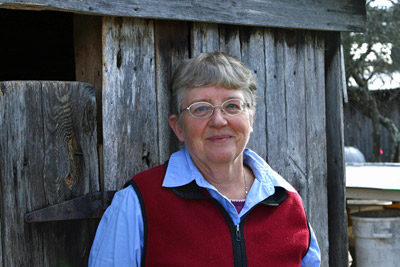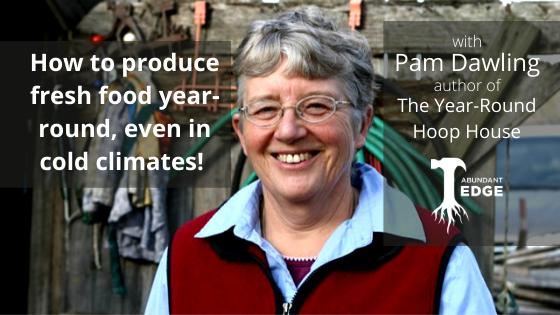
In the first half of this interview I spoke with Pam Dawling, the author of “The Year-Round Hoop House” about the most important information about siting, building, irrigating and soil care for extending crop growing in hoop houses. I tap in to Pam’s extensive knowledge of feeding 100 people in the Twin Oaks Intentional Community in Virginia, mostly from her 30’ by 100’ hoop house and the details of that particular setup.
In the second half of the interview we turn to a topic that so many of you listeners have written to me about, and that’s communal living. These days there’s a renewed interest in ecovillages, intentional communities, and various configurations of communities like that. Many of you who’ve been listening for a while know that I’ve been fascinated by these dynamics and community configurations for a long time too.
Pam gives great insights about her personal motivations for moving to a communal living situation as well as the decision making structure, and many other dynamics that have kept Twin Oaks together since its creation in 1967. Though we recorded this interview a while ago, there’s a lot of relevant information to the current world pandemic situation in that we talk a lot about the resilience and security inherent to land based and semi autonomous living.
I want to also send a quick message of solidarity to all of you around the world who have been affected by the coronavirus outbreak and economic impact of the response. As I’m recording this we’re in the second day of a nationwide quarantine here in Spain where all but essential services and businesses are closed for a two week minimum in order to halt the infection rates. Now more than ever we have an opportunity to rethink the way our communities and lifestyles are configured and how they interact with the environments immediately around us and around the world. In times like these it’s impossible not to see how every part of the planet is connected and how all of our actions, habits, lifestyles and consumption affect everyone else, more directly than ever. To prevent tragedies like this from becoming the new norm we urgently need to restore our damaged environment and work to create earth-wide resilience by regenerating the foundations of our food chains in the form of soil and water resources from which all other life is derived. We must find a way to create societies and cultures based on the care and creation of life in all its forms, not just our own. This unfortunate epidemic can serve as a positive event if it becomes the wake-up-call that inspires massive action on a global scale to completely reinvent the way our economies are structured from those based on resource extraction to those based on resource creation and stewardship. Many of us who have benefitted from the sequestration of wealth from around the world to afford us our comfort and relative abundance, including myself, have the choice to use this privilege to lift other people and other forms of life up, even though it means we compromise our own comfort and ease of living.
On a more personal note, I truly hope that this message finds all of you in good health and in good company. We need each other. We need community. You’re not in this alone. If any of you feel like reaching out through the comments on the website or by email, I would love to hear what you find inspiring and uplifting in these difficult times.
Resources:
https://www.sustainablemarketfarming.com/

